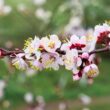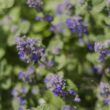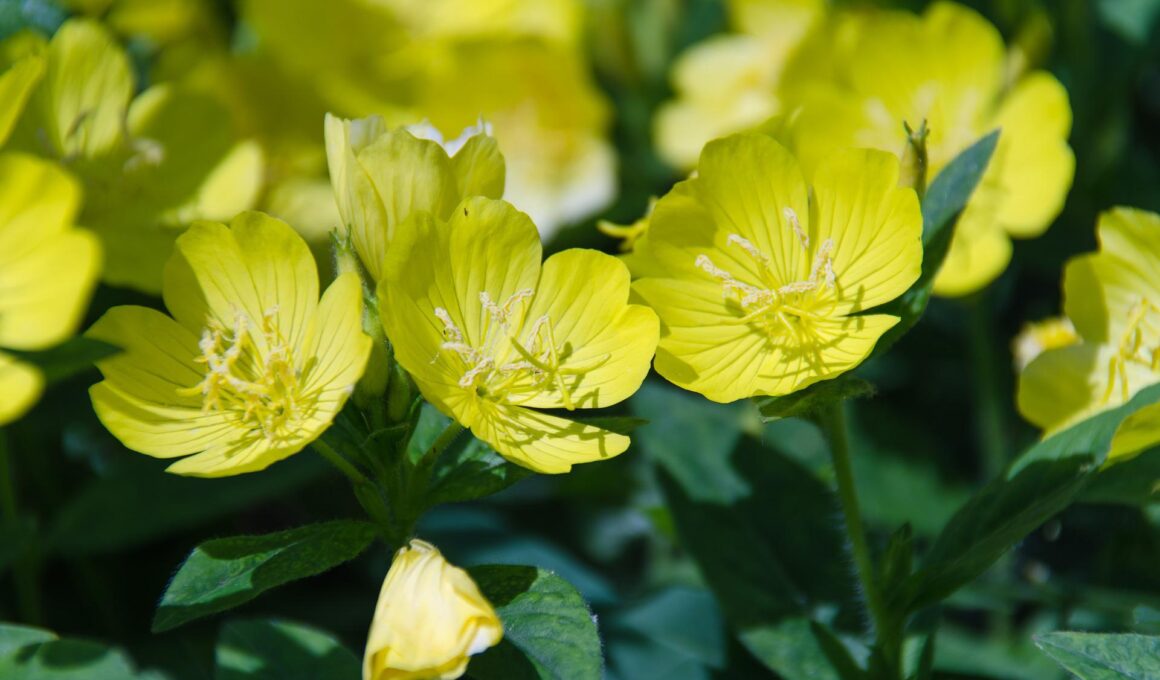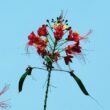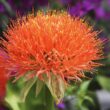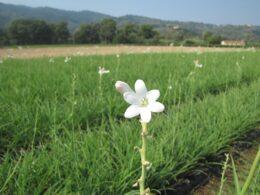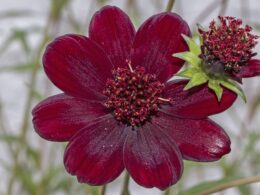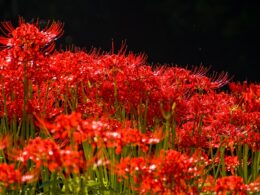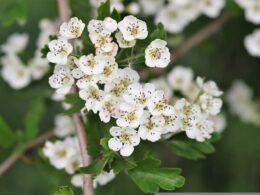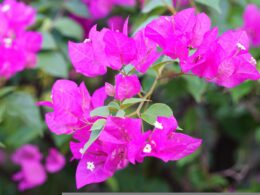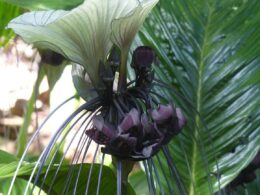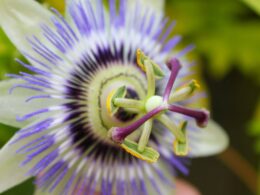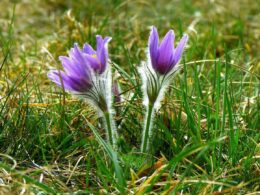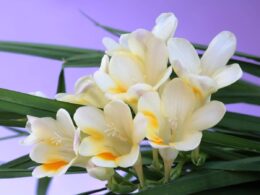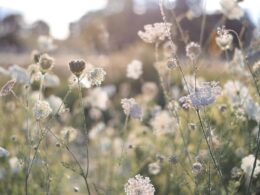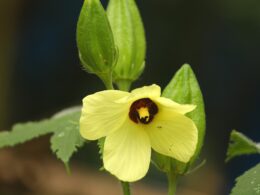Star of the Evening – the Evening Primrose Flower
The evening primrose flower is a beautiful plant that blooms in the evening hours, giving it its name. It is native to North America and grows in open areas such as fields and meadows. The scientific name for the evening primrose flower is Oenothera biennis. It belongs to the family Onagraceae, which includes about 70 other species of plants. The evening primrose flower has a long blooming period, from May to September. The flowers have a sweet fragrance and are typically about 1-2 inches in diameter.
How Does the Evening Primrose Plant Look Like?
The flowers are large and fragrant, with four petals that range in color from pale yellow to deep orange. The center of the flower is often a different color than the petals, and it is not unusual for the stamens to be tipped with crimson. While they are most often seen in shades of yellow and white, evening primrose flowers can also be found in pink and purple hues. The leaves are oblong and have a leathery texture. They grow in a rosette the first year, and spirally the second year. The plant can grow to be quite tall, sometimes reaching heights of over five feet.
Is the Evening Primrose Flower an Invasive Species?
The evening primrose is native to North America, but it has been introduced to other continents, where it has become an invasive species. The evening primrose flower is quick to adapt to new environments and can quickly outcompete native plants for resources. In addition, the plant produces large numbers of seeds that are easily dispersed by wind and animals. As a result, the evening primrose flower can quickly come to dominate an ecosystem, crowding out other plant life and altering the local ecology.
Where Can the Evening Primrose Flower Grow?
In its natural habitat, the evening primrose can be found growing in open meadows and along roadsides. They are considered wildflowers; however, the evening primrose flower is also a beautiful addition to any garden. It could be used as an ornamental garden plant and in landscaping projects.
How to Grow Evening Primrose Flowers?
The evening primrose is a beautiful biennial that is relatively easy to grow. The plants typically bloom in the late spring or early summer, and they can continue to bloom throughout the summer if they are well-tended.
How to Propagate Evening Primrose Flowers?
Though it is often grown from seed, propagating evening primrose from cuttings is a relatively simple process that can be done at home. First, take a cutting from a healthy evening primrose plant. Cut just below a leaf node and remove the lower leaves from the cutting, leaving only two or three at the top. Dip the cut end of the stem in rooting hormone, then plant it in a pot filled with moist potting mix. Place the pot in a warm location out of direct sunlight, and keep the soil moist by misting it regularly. Within a few weeks, roots should begin to form, and new growth will appear.
Where Should They Be Planted?
Evening primroses prefer full sun, and they do best in sandy, well-drained soil. Evening primrose prefers full sun, but will tolerate some shade, and it needs well-drained soil. It is also important to space the plants correctly, as they will spread out over time. When planting evening primrose, it is best to start with young plants or seeds.
How Often Should They Be Watered?
The plants are relatively drought-tolerant, but they will produce more flowers if they are watered regularly. For best results, water evening primrose once a week, making sure to soak the soil thoroughly. The amount of water needed will vary depending on the climate and time of year, so be sure to check the soil regularly to see if it needs more or less water. To encourage continuous blooming, deadhead the flowers regularly.
Can You Eat an Evening Primrose Flower?
Evening primrose flowers are edible and can be added to salads or used as a garnish. The leaves of the plant can also be eaten, and they have a slightly nutty flavor. In addition to being eaten, evening primrose flowers are also used for their medicinal properties. The flowers can be brewed into a tea that is said to help with anxiety and stress relief.
Are There any Medicinal Uses of Oenothera Biennis?
The evening primrose is often cultivated for its usefulness in treating a variety of ailments. The evening primrose is high in essential fatty acids, which makes it an excellent natural treatment for conditions like eczema and psoriasis. The flower is also rich in antioxidants, making it a valuable tool in the fight against free radicals. In addition, the evening primrose has anti-inflammatory properties that can help to reduce swelling and pain. For these reasons, the evening primrose is an important flower in both traditional medicine and modern herbalism.
EPO
Evening primrose oil (EPO) is derived from the seeds. For centuries, Native Americans used evening primrose oil to treat a variety of ailments, including headaches, sore throats, and upset stomachs. Today, evening primrose oil is most commonly used as a dietary supplement. Some people take it in an effort to improve their skin health, while others use it to help relieve the symptoms of premenstrual syndrome (PMS). There is also some evidence to suggest that evening primrose oil may help to reduce the severity of hot flashes associated with menopause.
While evening primrose oil is generally considered safe, it can cause some side effects, such as stomach upset and headache. The results of research are conflicting and could potentially cause harm. As with any supplement, it is important to talk to a healthcare provider before taking evening primrose oil.



